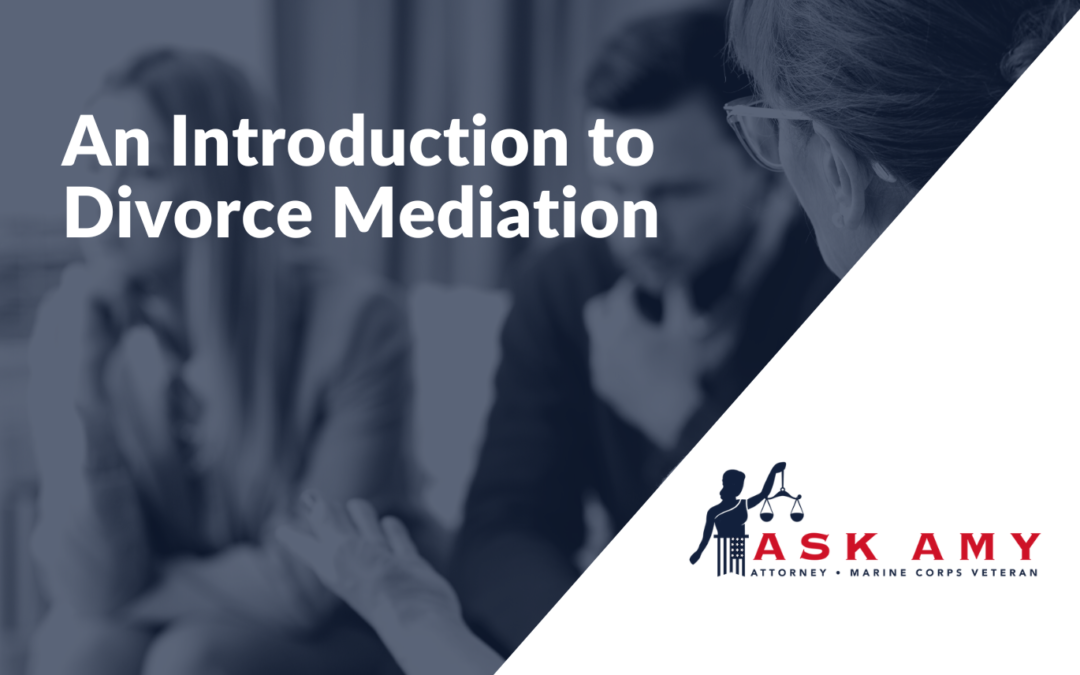Going to court isn’t the only option for settling a divorce. Often, couples determine the terms of their separation by going through mediation.
What is divorce mediation?
Divorce mediation is a process in which a neutral third party, called a mediator, helps divorcing spouses reach an agreement on all of the issues related to their divorce, such as child custody, child support, alimony, property division and debts. It is a voluntary process, and both spouses must agree to participate.
The mediation process begins with an initial meeting where the mediator explains the process, addresses any questions and sets the stage for productive communication. Subsequent mediation sessions, usually held at neutral locations like a mediator’s office or a community center, foster confidential discussions between spouses. It’s important to note that the mediator doesn’t make decisions but acts as a facilitator to help couples arrive at their own mutually agreeable solutions.
What are the benefits of divorce mediation?
Divorce mediation offers several significant advantages, including:
- Cost savings: Compared to court proceedings, mediation is typically a much more cost-effective option.
- Time savings: Mediation can often be completed more expeditiously than navigating the court system, reducing stress and enabling quicker resolutions.
- Increased control: Mediation empowers couples to maintain greater control over the outcome of their divorce, as they actively participate in shaping the agreement.
- Improved communication: By promoting open dialogue and fostering constructive discussions, mediation can enhance communication between spouses. This skill is particularly beneficial for co-parenting after the divorce is finalized.
- Higher satisfaction: Research indicates that individuals who choose mediation are generally more satisfied with the outcome of their divorce compared to those who opt for court litigation.
What are the drawbacks of divorce mediation?
While divorce mediation offers numerous benefits, it’s important to consider potential drawbacks, including:
- Success not guaranteed: Mediation may not always lead to a resolution if couples are unable to reach an agreement on certain issues. In such cases, alternative dispute resolution methods might be necessary.
- Emotional challenges: Engaging in mediation can be emotionally taxing, as it requires spouses to address sensitive topics and navigate complex emotions. The process may become frustrating if an agreement proves elusive.
- Suitability for all cases: It’s important to assess the suitability of mediation for each unique case. In situations involving violence or abuse, mediation may not be safe or effective. Consulting with professionals can help determine the best course of action.
What is the role of an attorney in divorce mediation?
Engaging an attorney is essential during divorce mediation, and they can fulfill various crucial roles, including:
- Legal advice: An attorney provides expert legal advice, ensuring you understand your rights and responsibilities throughout the process.
- Understanding the mediation process: Your attorney can help you navigate the complexities of mediation, making informed decisions about whether it’s the right choice for your divorce.
- Representation during mediation: You have the option to have your attorney represent you during mediation, advocating for your interests and facilitating effective communication.
- Drafting a divorce agreement: If mediation is successful, your attorney will skillfully draft a comprehensive divorce agreement that accurately reflects the terms agreed upon by you and your spouse.
If you are considering divorce mediation, it is important to speak with an attorney to discuss your options. Pietrowski Law Firm can help. Give us a call to learn more today.



Recent Comments